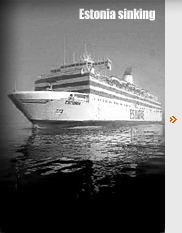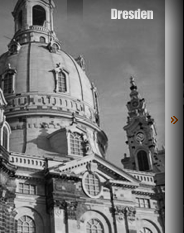
|

|

|

|

|
 9-11 Archive 2002
9-11 Archive 2002 Firefighters' Final Words Debunk Fire Collapse Theory
Firefighters' Final Words Debunk Fire Collapse Theory 

Firefighters' Final Words Debunk Fire Collapse TheoryAugust 7, 2002 Evidence that debunks the official explanation for the collapse of the World Trade Center is being kept secret by the Department of Justice on a flimsy pretext. The Department of Justice has ordered secrecy measures to keep the contents of a "lost tape" of firefighters' voices at the World Trade Center from being made public. The 78-minute audiotape evidently debunks the accepted explanation that intense jet fuel fires melted the towers' steel beams and caused the collapses. The New York Times recently revealed the existence of the tape of radio transmissions between firefighters of the New York Fire Department (NYFD), which proves that "at least two men" had reached the 78th floor Sky Lobby of the South Tower. The firefighters had reported about the fires and casualties they encountered and had begun evacuating the survivors. The article said that firefighters "reached the crash zone on the 78th floor, where they went to the aid of grievously injured people trapped in a sprawl of destruction." While the article raises as many questions as it answers, it points to a reason for the secrecy: "Once they got there," the article says, "they had a coherent plan for putting out the fires they could see and helping victims who survived." The report names two of the firefighters who were at the crash site: Battalion Chief Orio J. Palmer, who was organizing the evacuation of injured people, and Fire Marshal Ronald P. Bucca. Both were among the 343 firefighters who perished. The voices of the firefighters "showed no panic, no sense that events were racing beyond their control," the Times wrote. "At that point, the building would be standing for just a few more minutes, as the fire was weakening the structure on the floors above him. Even so, Chief Palmer could see only two pockets of fire, and called for a pair of engine companies to fight them." The fact that veteran firefighters had "a coherent plan for putting out" the "two pockets of fire" indicates they judged the blazes to be manageable. These reports from the scene of the crash provide crucial evidence debunking the government's claim that a raging steel-melting inferno led to the tower's collapse. As the FEMA "Building Performance Assessment" report says, "Temperatures may have been as high as 900-1,100 degrees Celsius (1,700-2,000 Fahrenheit) in some areas." "If FEMA's temperature estimates are correct, the interiors of the towers were furnaces capable of casting aluminum and glazing pottery," Eric Hufschmid, author of the book Painful Questions writes. Yet the voices on the tape prove that several firefighters were able to work "without fear" for an extended period at the point of the crash, and that the fires they encountered there were neither intense nor large. The South Tower disintegrated in less than an hour after being hit by a plane, which impacted between its 78th and 84th floors. "Fire has never caused a steel building to collapse," he writes. "So how did a 56-minute fire bring down a steel building as strong as the South Tower?" His forthcoming book presents compelling evidence that explosives caused the towers to collapse. Pointing to the Meridian Plaza fire in Philadelphia in 1991, he wrote, "The Meridian Plaza fire was extreme, but it did not cause the building to collapse. The fire in the South Tower seems insignificant by comparison to both the Meridian Plaza fire and the fire in the North Tower. How could the tiny fire in the South Tower cause the entire structure to shatter into dust after 56 minutes while much more extreme fires did not cause the Meridian Plaza building to even crack into two pieces?" The Port Authority of New York and New Jersey (PA), the bi-state authority and owner of the World Trade Center, retrieved the "lost tape." A spokesman for the authority, Greg Trevor, told me that the tape was found in PA police offices at 5 WTC, "two or three weeks" after 9-11. The PA police monitored radio transmissions from the WTC. Because of an unexplained delay in producing the tape, it was believed "for months" that firefighters had gone no higher than about the 50th floor in each tower. The delay, Trevor said, was due to the time required to transfer the voice data to "encrypted CDs." In January or February, the PA offered a copy of the tape to NYFD officials, who reportedly declined the offer because they did not want to sign the confidentiality agreement as demanded by the PA. The Independent (U.K.) added that the PA "held back from sharing it with police and only relinquished it on condition that a confidentiality agreement was signed." "That's not correct," Trevor said, regarding the allegation that the PA had withheld the tape from the police. The PA had only handled the tape "under the instruction of the U.S. attorney's office," he said. Spokesman Bernard Gifford said NYPD had not pursued a criminal investigation of 9-11, having "turned it over" to the FBI. Gifford wouldn't say when this occurred, although Joe Valiquette of the New York office of the FBI told me that the federal bureau had run the investigation "from the moment it happened." On Aug. 2 the relatives of the 16 firefighters whose voices were identified on the tape were allowed to hear their last words in a New York City hotel. The families were first required to sign a statement prepared by lawyers that they would not disclose what was said on the tape. Despite the fact that the contents of the tape are being kept secret, the Times article says, "Only now, nearly a year after the attacks, are the efforts of Chief Palmer, Mr. Bucca and others becoming public. City fire officials simply delayed listening to a 78-minute tape that is the only known recording of firefighters inside the towers." While Fire Commissioner Nicholas Scoppetta said he had not known the tape existed until "very recently," both the Times and CNN err in claiming that the NYFD is the agency behind the extreme secrecy. "The Fire Department has forbidden anyone to discuss the contents publicly on the ground that the tape might be evidence in the trial of Zacarias Moussaoui, the man accused of plotting with the hijackers," the Times said. When I asked the NYFD why the only conversations between firefighters engaged at the scene of the crash had to be kept secret because of Moussaoui, who was in prison in Minnesota at the time, the spokesman replied, "Take it up with the Department of Justice." Asked about the numerous reports by eyewitnesses, including firefighters, of explosions inside the towers before they collapsed, Mike Logrin, spokesman for the NYFD, said, "We're pretty sure there weren't bombs in the building." On Sept. 11 the British Broadcasting Corp. (BBC) interviewed one of its New York-based reporters, Steve Evans, who was in the second tower when it was hit. "I was at the base of the second tower, the second tower that was hit," Evans said. "There was an explosion—I didn't think it was an explosion—but the base of the building shook. I felt it shake . . . then when we were outside, the second explosion happened and then there was a series of explosions. . . . We can only wonder at the kind of damage—the kind of human damage—which was caused by those explosions—those series of explosions," he said. Evans is a professional journalist and although his observations of explosions in the second tower should be taken into account, they are not. Numerous eyewitnesses reported also seeing or hearing explosions. Valiquette of the FBI told me that he had not "heard anything" about reports of explosions in the building and that he had "never heard any discussion of it" in the FBI's New York office.
|
©2010 Christopher Bollyn | Sitemap | christopher@bollyn.com

